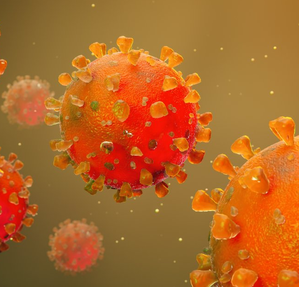America
The CDC reports that 28% of COVID-19 cases in the US have been found to have new variations called FLiRT.

May 17 :
Results from the CDC's wastewater surveillance programme have shown the presence of a novel group of COVID-19 variants codenamed FLiRT. "The CDC is tracking SARS-CoV-2 variants KP.2 and KP.1.1, sometimes referred to as 'FLiRT,' and working to better understand their potential impact on public health," a statement sent by the agency said.
Out of all the COVID-19 instances detected in the US between April 28 and May 11, the KP.2 variant was responsible for 28% of those cases, much outnumbering the JN.1 variant's 16%. During the winter of 2023, the JN.1 version swept over the world.
Conversely, 7% of the most recent COVID-19 cases in the US were KP.1.1s.
At now, KP.2 is the most common SARS-CoV-2 type in the US, however data from lab tests show that overall transmission is minimal. Since the transmission of SARS-CoV-2 is minimal, the CDC stated that even though KP.2 is the most common variety, it is not leading to an increase in illnesses.
Some researchers have also speculated that the number of COVID-19 cases may spike this summer. But it's not certain that this will cause a fresh "wave" of COVID-19.
Every one of them is a direct descendant of the JN.1 strain, which has been the most common in the United States over the last few months. In order to avoid detection by antibodies, viruses like SARS-CoV-2 undergo repeated mutations. However, this process frequently compromises their capacity to attach to the cells they intend to infect. "Then, mutations that enhance that binding ability start to show up," writes Andy Pekosz, PhD, of Johns Hopkins University's department of molecular microbiology and immunology.
"That said, our definition of a wave has changed; while we still see case rates rise and fall throughout the year, we see much lower numbers of cases of hospitalisations or deaths than we saw in the first couple years of the pandemic," said Pekosz.
Nonetheless, the CDC in the United States stated that there were no signs that KP.2 will cause more severe sickness than other strains at this time.
We are not observing any novel or distinct symptoms with these variations. Although we are seeing fewer severe cases, it is probably not due to a weaker virus but rather to our significantly improved immunity. The majority of the population has become more resilient to illnesses and vaccines over the years, so there is less need to worry about serious sickness, according to Johns Hopkins.



































